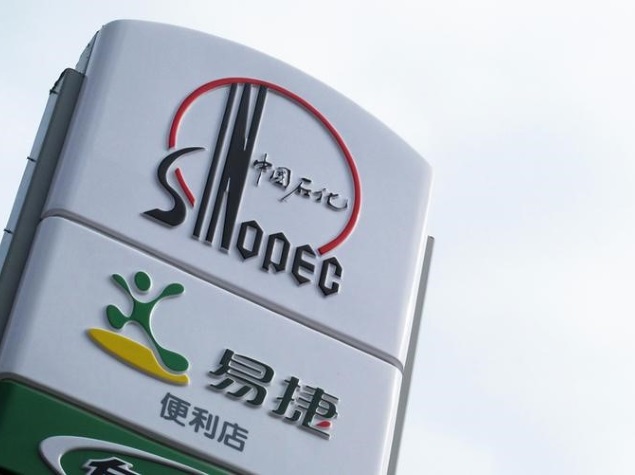Sinopec Teams Up With Tencent in Retail Ahead of Stake Sale
Advertisement

Chinese oil giant Sinopec Corp has signed a preliminary deal with Internet company Tencent Holdings Ltd to introduce digital commerce to the retail arm the oil giant is partially privatising.
Sinopec said in a statement on Tuesday that it has agreed to work with Tencent, China's largest listed internet firm, in areas like mobile payment, big data services and digital navigation at its network of more than 30,000 petrol stations and over 23,000 convenience stores across China.
Sinopec is selling up to 30 percent of its retail arm in a sale analysts say could raise around $20 billion. The announcement of the Tencent partnership, the latest in a series of similar deals in recent months, was aimed at promoting the growth potential of Sinopec's non-fuel retail business ahead of the planned sale, analysts say.
The oil company has signed agreements with multiple Chinese firms this year to make more use of its petrol stations and provide more services to consumers. The companies include delivery service firm S.F. Express, retailer Ruentex Group, e-commerce firm YHD.com and Taiping Insurance Group, Sinopec has said.
"The non-oil business of Sinopec...has huge potential. Sinopec aims to provide comprehensive and integrated services in the future," Sinopec Chairman Fu Chengyu said on the firm's interim earnings call, according to Tuesday's statement.
Advertisement
Unlike in Western markets, where non-fuel businesses convenience stores and services like fast food or car washing can account for more than half of a fuel station's profits, more than 99 percent of Sinopec's retail sales come from petrol.
Sinopec has shortlisted 37 bidding consortia for an up to 30 percent stake in its fuel retail unit and plans to choose a winning bidder by end-September.
Advertisement
The firm said it will work with Tencent on customer loyalty services, cross-marketing opportunities and online-to-offline retail services. Online-to-offline involves people using their smartphones to connect to the internet to order goods and services for delivery from retailers.
It said it aims to make use of Tencent's hugely popular messaging services, including the WeChat mobile app and QQ Instant Messenger.
Advertisement
"The strategic partnership with Sinopec Sales Co. Ltd. allows us to leverage our respective strengths and jointly explore areas including mobile payment, online-to-offline services, map navigation, big data, etc. in the future," said a spokeswoman for Tencent.
Tencent, influential in video gaming and social media, is pushing its e-commerce credentials in China, particularly for WeChat. The app, known locally as Weixin, is turning into a tool used for everything from chatting to gaming, booking taxis and making payments with a smartphone.
This has put Tencent on a collision course with its arch-rival, the soon-to-list Alibaba Group Holding Ltd which dominates e-commerce in China. The two are scrapping for dominance in the world's biggest smartphone market, as the rise of the mobile internet opens up an array of new business opportunities.
© Thomson Reuters 2014
For the latest tech news and reviews, follow Gadgets 360 on X, Facebook, WhatsApp, Threads and Google News. For the latest videos on gadgets and tech, subscribe to our YouTube channel. If you want to know everything about top influencers, follow our in-house Who'sThat360 on Instagram and YouTube.
Advertisement
